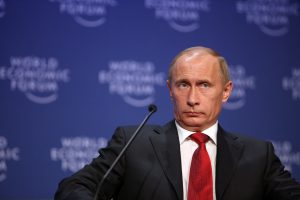Emmanuel Macron was not wrong. When Joe Biden called for the fighting in Gaza to stop, ‘coherence’ would dictate that he no longer supply the weapons that sustain the fighting. Even a child would understand this, but where is the coherence when this same Emmanuel Macron postpones the recognition of Palestine until who knows when, even though France has always defended the idea of coexistence between two states, Israel and Palestine, and he has himself endorsed this idea?
The French President is showing no more coherence here than the US President, and the tragedy is that incoherence has become the rule on both sides of the Atlantic. The best example of this is Ukraine. Americans and Europeans are unanimous in their view that Vladimir Putin must not emerge victorious from his aggression, as he would then be in a position to pursue his ambition to reconstitute the Russian Empire. The West is therefore providing the Ukrainians with enough weapons to meet the challenge, but prohibiting them from using them to strike military targets on Russian territory.
The reason for this is that they fear that a defeat for Vladimir Putin would plunge the world’s largest country into chaos and its nuclear arsenal out of control. In short, the Americans and Europeans do not want to see Ukraine win any more than they want to see it lose, because a Russian defeat would be just as dangerous, in their eyes, as a Russian victory. They know what they don’t want, but they don’t know what they do want. It is the same inability to make up their minds and take action that they are demonstrating in the Middle East.
For three decades, the United States and the European Union have been jointly advocating a two-state solution in the Middle East, but have never been willing to compel the two parties to really accept it. For fear of building against themselves a front of Arab countries, of Iran and of Turkey, they have always refrained from telling the Palestinians in black and white that there would no longer be a Western veto on the annexation of the occupied territories if they persisted in refusing a permanent partition. For fear that the Sunni Islamists and Iran would prevail throughout the region, they also never threatened to deprive the Israelis of economic and military aid if they continued to do everything they could to prevent the creation of a Palestinian state.
Europeans and Americans have condemned themselves to powerlessness, and now that the Israelis have responded to the 7 October massacre by smashing Hamas and decapitating Hezbollah, they are refusing to let them bomb Iran’s nuclear sites. Of course, the West is well aware that the Islamic Republic is now going to acquire the bomb, but it forbids the Israelis to prevent it from doing so for fear of a long and uncertain period of indiscriminate terrorism.
In the Middle East as in Ukraine, Americans and Europeans are paralyzed by the fear of the unknown. Their pervasive obsession is to preserve familiar frameworks, even though the world no longer has either common rules or frameworks, and the only way to ensure international stability is to formulate and enforce clear objectives that are likely to impose on everyone.
In Ukraine, the West would make a great deal of progress if it made it known, firstly, that it would be in favour of political and territorial compromises between Kiev and Moscow and, secondly, that it would lift its veto on the use of its weapons on Russian territory if Vladimir Putin refused to recall his troops and negotiate the terms of a modus vivendi. In the Middle East, you only have to look at the panic with which Benjamin Netanyahu reacted to Emmanuel Macron’s remarks about stopping delivering arms which are used for striking Gaza to understand that the Americans and Europeans could quickly force him to create a Palestinian state by threatening to cut off their aid.
Only the European Union and the United States are powerful enough to block the rise of international disorder, but to do so they must relearn what it means to speak out.
(Photo: Ted Eytan, Creative Commons)



